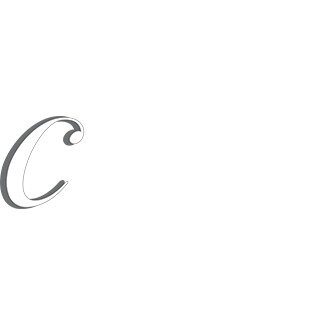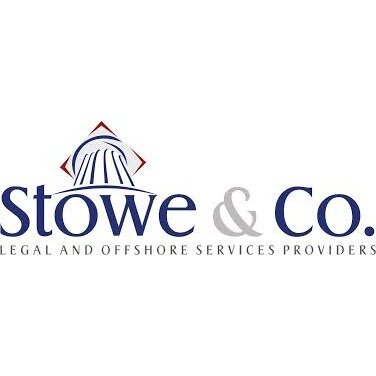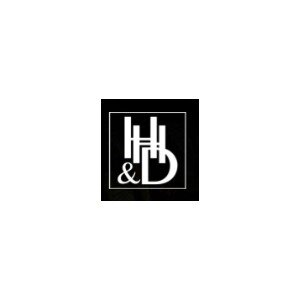Best Sanctions & Export Controls Lawyers in Dominica
Share your needs with us, get contacted by law firms.
Free. Takes 2 min.
Or refine your search by selecting a city:
List of the best lawyers in Dominica
About Sanctions & Export Controls Law in Dominica
Sanctions and export controls refer to legal measures that restrict or regulate trade, financial transactions, and other interactions with specific countries, persons, or entities to achieve national security or foreign policy goals. In Dominica, these regulations are influenced by both domestic legislation and international commitments. The main goal is to ensure that certain goods, technologies, and services are not exported or imported in violation of international obligations, such as those imposed by the United Nations Security Council or regional bodies. Dominica’s legal framework also aims to prevent its territory from being used to facilitate unlawful transactions, particularly with rogue states or sanctioned individuals.
Why You May Need a Lawyer
Legal advice is important in the area of sanctions and export controls because the rules are complex and non-compliance can result in severe penalties. Common situations where legal support is necessary include:
- Evaluating whether a planned export or import violates local or international restrictions
- Facing investigations or enforcement action from authorities over sanctions or export control breaches
- Conducting business with partners in high-risk jurisdictions
- Needing to understand the due diligence requirements for financial dealings
- Seeking clarification on the scope of permitted humanitarian or technical exceptions
- Needing advice on updating internal compliance procedures
- Addressing issues involving dual use goods, military products, or cryptocurrenices
- Assisting with licensing or authorization applications
A lawyer with experience in these areas can clarify obligations, assist with compliance, and represent you in dealings with local or international regulators.
Local Laws Overview
Sanctions and export controls in Dominica are governed by a mix of national legislation and international agreements. As a member of the United Nations and CARICOM, Dominica is obligated to enforce sanctions adopted by these bodies. Key elements of the local framework include:
- The Money Laundering (Prevention) Act, which addresses financial crimes related to sanctions evasion
- Customs laws that provide the legal basis for controlling the import and export of goods and technologies
- Orders or regulations by the government to enforce international sanctions or embargoes, particularly those of the UN Security Council
- Licensing schemes for the trade in sensitive goods, including arms, dual-use items, and potentially sensitive technologies
- Collaboration with international bodies to monitor and enforce compliance with sanctions
Businesses and individuals must be vigilant about current regulatory updates, as the lists of sanctioned countries, entities, and goods can change frequently. Failure to comply with sanctions or export controls may result in criminal prosecution, heavy fines, asset seizures, or reputational harm.
Frequently Asked Questions
What are international sanctions?
International sanctions are restrictions imposed by governments or bodies like the United Nations to influence the behavior of countries, businesses, or individuals. These can include asset freezes, travel bans, and trade restrictions.
Does Dominica have its own export control laws?
Dominica applies a combination of local customs and financial crime laws and adopts sanctions and restrictions enacted by international organizations such as the United Nations and CARICOM.
How do I know if a good or service is subject to export controls?
You should consult the most recent customs regulations and government notices as well as international lists for restricted items. Legal advice is recommended, especially for dual use goods, military equipment, or sensitive technologies.
Can I trade with an individual or business from a sanctioned country?
In most cases, transactions with individuals or organizations from a sanctioned country are prohibited unless you have received a specific government license or exemption.
What are the penalties for breaching sanctions or export controls in Dominica?
Penalties can include substantial fines, imprisonment, confiscation of goods, and damage to your business reputation. Each case will depend on the circumstances and severity of the violation.
Who enforces sanctions and export controls in Dominica?
Enforcement is typically handled by Customs, the Financial Intelligence Unit, and other relevant government agencies, often in cooperation with international partners.
How often do sanction lists change?
Sanction lists may be updated frequently, sometimes several times a year, to respond to developments in global security or foreign policy. It is important to keep up to date with official government communications.
Are there any exceptions to sanctions or export controls?
Some humanitarian, medical, or technical exceptions may be granted on a case-by-case basis by the government or under international law. You must apply for approval and document the purpose of your transaction.
What should I do if I am involved in a transaction that might breach sanctions?
Contact a qualified legal professional immediately. You should also notify the relevant government body if necessary and halt the transaction until you have legal clarity.
Where can I find more information about current sanctions and export controls?
Consult official sources such as government websites, the Financial Intelligence Unit, or international bodies like the UN for the latest updates. Legal professionals can also provide current and relevant advice.
Additional Resources
If you need further information or wish to confirm specific regulatory details, the following resources and organizations can be helpful:
- Dominica Customs & Excise Division - for regulations on import and export controls
- Financial Intelligence Unit (FIU) - for guidance on anti-money laundering and transactions involving sanctions
- Ministry of Foreign Affairs, International Business, Trade and Energy - for inquiries about international sanctions and government orders
- United Nations Security Council Sanctions Committee - for updated lists and sanction regimes relevant to Dominica
- Caribbean Community (CARICOM) - for regional trade and compliance guidelines
- Private legal practitioners specializing in export controls and sanctions law
Next Steps
If you believe you may be subject to Dominica’s sanctions or export control laws, or if you are uncertain about your legal obligations, it is strongly recommended to do the following:
- Gather all documentation related to your intended transaction, including contracts, shipping documents, and communications
- Review any government guidance or public notices on current sanctions and restrictions
- Contact a qualified attorney with experience in sanctions and export control law who practices in Dominica
- Arrange an initial consultation to discuss your situation and receive tailored advice
- Follow legal advice carefully and avoid proceeding with any questionable transactions without full legal clearance
- Stay informed about any changes in sanctions, export control regulations, or related compliance requirements
Taking early action to understand and comply with sanctions and export controls in Dominica will protect you and your business from unintended legal exposure and help ensure continued lawful operations.
Lawzana helps you find the best lawyers and law firms in Dominica through a curated and pre-screened list of qualified legal professionals. Our platform offers rankings and detailed profiles of attorneys and law firms, allowing you to compare based on practice areas, including Sanctions & Export Controls, experience, and client feedback.
Each profile includes a description of the firm's areas of practice, client reviews, team members and partners, year of establishment, spoken languages, office locations, contact information, social media presence, and any published articles or resources. Most firms on our platform speak English and are experienced in both local and international legal matters.
Get a quote from top-rated law firms in Dominica — quickly, securely, and without unnecessary hassle.
Disclaimer:
The information provided on this page is for general informational purposes only and does not constitute legal advice. While we strive to ensure the accuracy and relevance of the content, legal information may change over time, and interpretations of the law can vary. You should always consult with a qualified legal professional for advice specific to your situation.
We disclaim all liability for actions taken or not taken based on the content of this page. If you believe any information is incorrect or outdated, please contact us, and we will review and update it where appropriate.
Browse sanctions & export controls law firms by city in Dominica
Refine your search by selecting a city.











